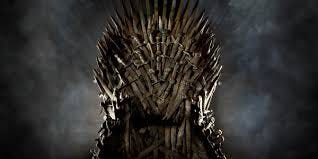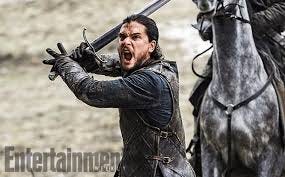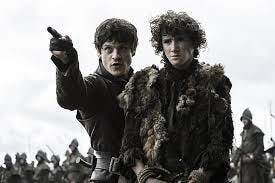Battle of the Bastards: Notes on Strategy
By Idiare Atimomo
I’m a Game Of Thrones fanatic. There I admit it. Episode 9 of Season 6 was primal in the emotions it elicited from many viewers. I watched it after work in the office with my colleagues. In one of the most gripping scenes ever (apparently filmed over 10 hours) Jon Snow was pummeling Ramsay Bolton’s face in an armada of face jabs — our reaction watching this scene had 7 men howling and screaming rabidly egging him on, literally baying for his blood.
I digress, it was a kick ass episode.
Viewed from the prism of strategy though, I have been asking myself who was a better strategist between both men. In my mind, Ramsay came out tops. I have always believed that the heart and success of strategy is a person’s understanding of human nature. Not a fixation with shiny new models of thought/thinking but the clear eyed understanding of human nature.
This clear eyed understanding of what motivates people to act or not act, to fight or flee, to be loyal or to rebel is the kernel of strategy. The greatest strategic minds in business or warfare have been those armed with this clarity of thought. If they can predict and provoke human reaction they can determine appropriate actions.
Jon Snow rushed into battle without a sizable army, he was easily provoked to confront a whole army on foot just by the expectedly horrifying spectacle of watching his brother Rickon die by the arrows of Ramsay. More importantly, he downplayed the advice of his sister on war strategy (I would give him the benefit of the doubt that this wasn’t sexist as he went seeking Melisandre’spath to victory advice).
All these 3 actions were quite accurately prepared for and accounted for in Ramsay Bolton’s war plan, he knew Jon would rush forward to save his brother (so he sent the cavalry to kill him off once he had been drawn away from his troops), he was ready to sacrifice half his own army to defeat Jon Snow (ordering the archers to rain arrows on his enemies and his own cavalry) and after encircling them with his ground troops, a closed assault would make even the toughest soldiers panic and stampede each other.
Brilliant strategy. It worked. The battle was won. Or so he thought.
It took the now very intrepid Sansa Stark to unravel his strategy. She came to battle armed with an insight into how Ramsay thought (traps, games and butchery), she was prepared to cut her known losses (Rickon Stark was dead to her before the day of battle), she called for help from someone she ought to despise (Petyr Baelish a.k.a Littlefinger) and came to the battle ground just at the time when Ramsay Bolton was at his weakest in resources to fight or the mental state in which to re-strategize.
Ramsay was defeated. I never thought I would enjoy watching a man being eaten alive as much as I did
Game of thrones does that to you.
What can strategy students learn from this epic battle? While predictive modelling and other gizmos are what floats the modern strategists boat today, I would call for a return to the origins of strategy. The well-worn path of Sun Tzu & Machiavelli and their modern apostle Robert Greene
The mastery of human nature remains the heart of strategy.
Once you have a thorough grasp on how a person or organization will react to an action or event you can own the outcomes in the field of play.
In the field of marketing, the heart of strategy is the understanding ofSegmentation, Targeting and Positioning. How well have you done the heavy lifting of research in understanding the customer segment your product or service is meant to appeal to? Of all the segments in a market which is the most profitable to target as business? What is the best positioning framework to engage the segments you have selected?
Companies that dominate their markets are those with the most robust understanding of customer segments and who act on this knowledge in respect to their competition. They invest in competitive information gathering to know how their competitors think and predict how they will act. They use this knowledge to spring new initiatives, refine existing services and win market share.
Always remember — Comprehension drives action.
In the immortal words of Cato –Rem Tene, Verba Sequentur — “Grasp the subject and the words will follow”.
When the dust settled at Winterfell, we could only hail the one person whose grasp of human nature was complete for all the actors on the battle field.
For her role in the battle of the bastards, I would gladly bend the knee.






Comments